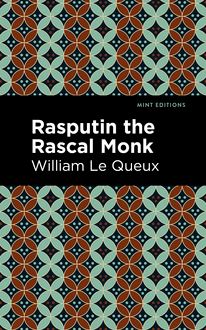-
 Univers
Univers
-
 Ebooks
Ebooks
-
 Livres audio
Livres audio
-
 Presse
Presse
-
 Podcasts
Podcasts
-
 BD
BD
-
 Documents
Documents
-
- Cours
- Révisions
- Ressources pédagogiques
- Sciences de l’éducation
- Manuels scolaires
- Langues
- Travaux de classe
- Annales de BEP
- Etudes supérieures
- Maternelle et primaire
- Fiches de lecture
- Orientation scolaire
- Méthodologie
- Corrigés de devoir
- Annales d’examens et concours
- Annales du bac
- Annales du brevet
- Rapports de stage
La lecture à portée de main
Vous pourrez modifier la taille du texte de cet ouvrage
Découvre YouScribe en t'inscrivant gratuitement
Je m'inscrisDécouvre YouScribe en t'inscrivant gratuitement
Je m'inscrisEn savoir plus
Vous pourrez modifier la taille du texte de cet ouvrage
En savoir plus

Description
The People of the Abyss (1903) is a work of nonfiction by American writer Jack London. Written after the author spent three months living in London’s poverty-stricken East End, The People of the Abyss bears witness to the difficulties faced by hundreds and thousands of people every day in one of the wealthiest nations on earth. Inspired by Friedrich Engels’s The Condition of the Working Class in England (1845) and Jacob Riis’s How the Other Half Lives, London hoped to expose the indignities faced by those left behind by industrialization. In 1902, Jack London traveled to England to live in the slums of London’s East End. Hoping to learn about the lives and experiences of the city’s working class, he spent three months staying in workhouses, sleeping on the streets, and lodging with a poor family in the area. Drawing on his own experience as a working-class American, and informed by his dedicated understanding of socialism, London recorded what he saw of the lives of London’s poor, the hundreds of thousands of humans held back from the nation’s progress toward modernization. The People of the Abyss was a popular and critical success upon publication and would inspire the young George Orwell to conduct his own research on poverty and urban life, which he recorded in his groundbreaking work Down and Out in Paris and London. Although he is known more for his contributions to fiction, London was a talented journalist whose experiences as a world traveler and worker allowed him to capture the deprivations of impoverished life while preserving a sense of humanity and advocating for much needed change. With a beautifully designed cover and professionally typeset manuscript, this edition of Jack London’s The People of the Abyss is a classic of American literature reimagined for modern readers.
Sujets
Informations
| Publié par | Mint Editions |
| Date de parution | 07 mai 2021 |
| Nombre de lectures | 0 |
| EAN13 | 9781513275116 |
| Langue | English |
| Poids de l'ouvrage | 2 Mo |
Informations légales : prix de location à la page 0,0450€. Cette information est donnée uniquement à titre indicatif conformément à la législation en vigueur.
Extrait
The People of the Abyss
Jack London
The People of the Abyss was first published in 1903.
This edition published by Mint Editions 2021.
ISBN 9781513270111 | E-ISBN 9781513275116
Published by Mint Editions®
minteditionbooks.com
Publishing Director: Jennifer Newens
Design & Production: Rachel Lopez Metzger
Typesetting: Westchester Publishing Services
C ONTENTS P REFACE I. T HE D ESCENT II. J OHNNY U PRIGHT III. M Y L ODGING AND S OME O THERS IV. A M AN AND THE A BYSS V. T HOSE ON THE E DGE VI. F RYING -P AN A LLEY AND A G LIMPSE OF I NFERNO VII. A W INNER OF THE V ICTORIA C ROSS VIII. T HE C ARTER AND THE C ARPENTER IX. T HE S PIKE X. C ARRYING THE B ANNER XI. T HE P EG XII. C ORONATION D AY XIII. D AN C ULLEN , D OCKER XIV. H OPS AND H OPPERS XV. T HE S EA W IFE XVI. P ROPERTY V ERSUS P ERSON XVII. I NEFFICIENCY XVIII. W AGES XIX. T HE G HETTO XX. C OFFEE -H OUSES AND D OSS -H OUSES XXI. T HE P RECARIOUSNESS OF L IFE XXII. S UICIDE XXIII. T HE C HILDREN XXIV. A V ISION OF THE N IGHT XXV. T HE H UNGER W AIL XXVI. D RINK , T EMPERANCE , AND T HRIFT XXVII. T HE M ANAGEMENT
P REFACE
The experiences related in this volume fell to me in the summer of 1902. I went down into the under-world of London with an attitude of mind which I may best liken to that of the explorer. I was open to be convinced by the evidence of my eyes, rather than by the teachings of those who had not seen, or by the words of those who had seen and gone before. Further, I took with me certain simple criteria with which to measure the life of the under-world. That which made for more life, for physical and spiritual health, was good; that which made for less life, which hurt, and dwarfed, and distorted life, was bad.
It will be readily apparent to the reader that I saw much that was bad. Yet it must not be forgotten that the time of which I write was considered “good times” in England. The starvation and lack of shelter I encountered constituted a chronic condition of misery which is never wiped out, even in the periods of greatest prosperity.
Following the summer in question came a hard winter. Great numbers of the unemployed formed into processions, as many as a dozen at a time, and daily marched through the streets of London crying for bread. Mr. Justin McCarthy, writing in the month of January 1903, to the New York Independent , briefly epitomises the situation as follows:
“The workhouses have no space left in which to pack the starving crowds who are craving every day and night at their doors for food and shelter. All the charitable institutions have exhausted their means in trying to raise supplies of food for the famishing residents of the garrets and cellars of London lanes and alleys. The quarters of the Salvation Army in various parts of London are nightly besieged by hosts of the unemployed and the hungry for whom neither shelter nor the means of sustenance can be provided.”
It has been urged that the criticism I have passed on things as they are in England is too pessimistic. I must say, in extenuation, that of optimists I am the most optimistic. But I measure manhood less by political aggregations than by individuals. Society grows, while political machines rack to pieces and become “scrap.” For the English, so far as manhood and womanhood and health and happiness go, I see a broad and smiling future. But for a great deal of the political machinery, which at present mismanages for them, I see nothing else than the scrap heap.
J ACK L ONDON
P IEDMONT , C ALIFORNIA
I
T HE D ESCENT
“ B ut you can’t do it, you know,” friends said, to whom I applied for assistance in the matter of sinking myself down into the East End of London. “You had better see the police for a guide,” they added, on second thought, painfully endeavouring to adjust themselves to the psychological processes of a madman who had come to them with better credentials than brains.
“But I don’t want to see the police,” I protested. “What I wish to do is to go down into the East End and see things for myself. I wish to know how those people are living there, and why they are living there, and what they are living for. In short, I am going to live there myself.”
“You don’t want to live down there!” everybody said, with disapprobation writ large upon their faces. “Why, it is said there are places where a man’s life isn’t worth tu’pence.”
“The very places I wish to see,” I broke in.
“But you can’t, you know,” was the unfailing rejoinder.
“Which is not what I came to see you about,” I answered brusquely, somewhat nettled by their incomprehension. “I am a stranger here, and I want you to tell me what you know of the East End, in order that I may have something to start on.”
“But we know nothing of the East End. It is over there, somewhere.” And they waved their hands vaguely in the direction where the sun on rare occasions may be seen to rise.
“Then I shall go to Cook’s,” I announced.
“Oh yes,” they said, with relief. “Cook’s will be sure to know.”
But O Cook, O Thomas Cook & Son, path-finders and trail-clearers, living sign-posts to all the world, and bestowers of first aid to bewildered travellers—unhesitatingly and instantly, with ease and celerity, could you send me to Darkest Africa or Innermost Thibet, but to the East End of London, barely a stone’s throw distant from Ludgate Circus, you know not the way!
“You can’t do it, you know,” said the human emporium of routes and fares at Cook’s Cheapside branch. “It is so—hem—so unusual.”
“Consult the police,” he concluded authoritatively, when I had persisted. “We are not accustomed to taking travellers to the East End; we receive no call to take them there, and we know nothing whatsoever about the place at all.”
“Never mind that,” I interposed, to save myself from being swept out of the office by his flood of negations. “Here’s something you can do for me. I wish you to understand in advance what I intend doing, so that in case of trouble you may be able to identify me.”
“Ah, I see! should you be murdered, we would be in position to identify the corpse.”
He said it so cheerfully and cold-bloodedly that on the instant I saw my stark and mutilated cadaver stretched upon a slab where cool waters trickle ceaselessly, and him I saw bending over and sadly and patiently identifying it as the body of the insane American who would see the East End.
“No, no,” I answered; “merely to identify me in case I get into a scrape with the ‘bobbies.’” This last I said with a thrill; truly, I was gripping hold of the vernacular.
“That,” he said, “is a matter for the consideration of the Chief Office.”
“It is so unprecedented, you know,” he added apologetically.
The man at the Chief Office hemmed and hawed. “We make it a rule,” he explained, “to give no information concerning our clients.”
“But in this case,” I urged, “it is the client who requests you to give the information concerning himself.”
Again he hemmed and hawed.
“Of course,” I hastily anticipated, “I know it is unprecedented, but—”
“As I was about to remark,” he went on steadily, “it is unprecedented, and I don’t think we can do anything for you.”
However, I departed with the address of a detective who lived in the East End, and took my way to the American consul-general. And here, at last, I found a man with whom I could “do business.” There was no hemming and hawing, no lifted brows, open incredulity, or blank amazement. In one minute I explained myself and my project, which he accepted as a matter of course. In the second minute he asked my age, height, and weight, and looked me over. And in the third minute, as we shook hands at parting, he said: “All right, Jack. I’ll remember you and keep track.”
I breathed a sigh of relief. Having burnt my ships behind me, I was now free to plunge into that human wilderness of which nobody seemed to know anything. But at once I encountered a new difficulty in the shape of my cabby, a grey-whiskered and eminently decorous personage who had imperturbably driven me for several hours about the “City.”
“Drive me down to the East End,” I ordered, taking my seat.
“Where, sir?” he demanded with frank surprise.
“To the East End, anywhere. Go on.”
The hansom pursued an aimless way for several minutes, then came to a puzzled stop. The aperture above my head was uncovered, and the cabman peered down perplexedly at me.
“I say,” he said, “wot plyce yer wanter go?”
“East End,” I repeated. “Nowhere in particular. Just drive me around anywhere.”
“But wot’s the haddress, sir?”
“See here!” I thundered. “Drive me down to the East End, and at once!”
It was evident that he did not understand, but he withdrew his head, and grumblingly started his horse.
Nowhere in the streets of London may one escape the sight of abject poverty, while five minutes’ walk from almost any point will bring one to a slum; but the region my hansom was now penetrating was one unending slum. The streets were filled with a new and different race of people, short of stature, and of wretched or beer-sodden appearance. We rolled along through miles of bricks and squalor, and from each cross street and alley flashed long vistas of bricks and misery. Here and there lurched a drunken man or woman, and the air was obscene with sounds of jangling and squabbling. At a market, tottery old men and women were searching in the garbage thrown in the mud for rotten potatoes, beans, and vegetables, while little children clustered like flies around a festering mass of fruit, thrusting their arms to the shoulders into the liquid corruption, and drawing forth morsels but partially decayed, which they devoured on the spot.
Not a hansom did I meet with in all my drive, while mine was like an apparition from another and better world, the way the children ran after it and alongside. And as far as I could see were the solid walls of brick, the slimy pavements, and the screaming streets; and for the first time in my life the fear of the crowd smote m
-
 Univers
Univers
-
 Ebooks
Ebooks
-
 Livres audio
Livres audio
-
 Presse
Presse
-
 Podcasts
Podcasts
-
 BD
BD
-
 Documents
Documents
-
Jeunesse
-
Littérature
-
Ressources professionnelles
-
Santé et bien-être
-
Savoirs
-
Education
-
Loisirs et hobbies
-
Art, musique et cinéma
-
Actualité et débat de société
-
Jeunesse
-
Littérature
-
Ressources professionnelles
-
Santé et bien-être
-
Savoirs
-
Education
-
Loisirs et hobbies
-
Art, musique et cinéma
-
Actualité et débat de société
-
Actualités
-
Lifestyle
-
Presse jeunesse
-
Presse professionnelle
-
Pratique
-
Presse sportive
-
Presse internationale
-
Culture & Médias
-
Action et Aventures
-
Science-fiction et Fantasy
-
Société
-
Jeunesse
-
Littérature
-
Ressources professionnelles
-
Santé et bien-être
-
Savoirs
-
Education
-
Loisirs et hobbies
-
Art, musique et cinéma
-
Actualité et débat de société
- Cours
- Révisions
- Ressources pédagogiques
- Sciences de l’éducation
- Manuels scolaires
- Langues
- Travaux de classe
- Annales de BEP
- Etudes supérieures
- Maternelle et primaire
- Fiches de lecture
- Orientation scolaire
- Méthodologie
- Corrigés de devoir
- Annales d’examens et concours
- Annales du bac
- Annales du brevet
- Rapports de stage




















